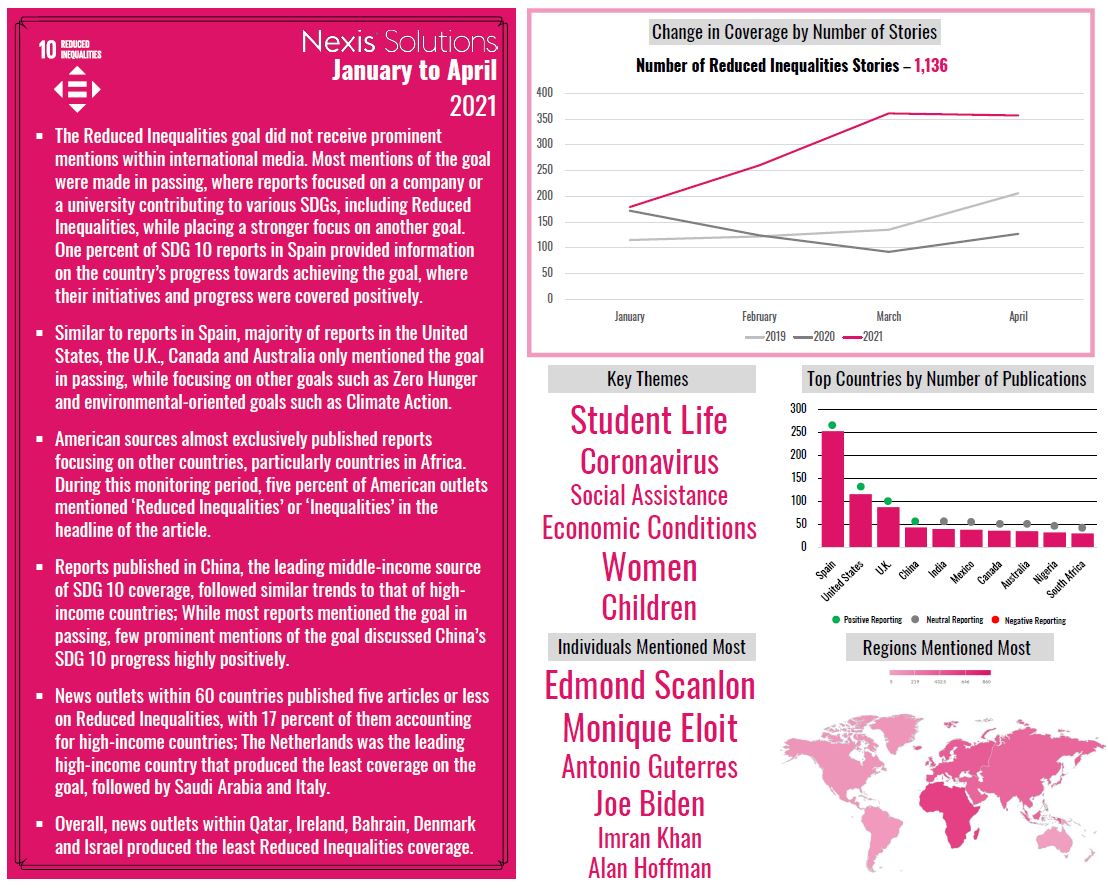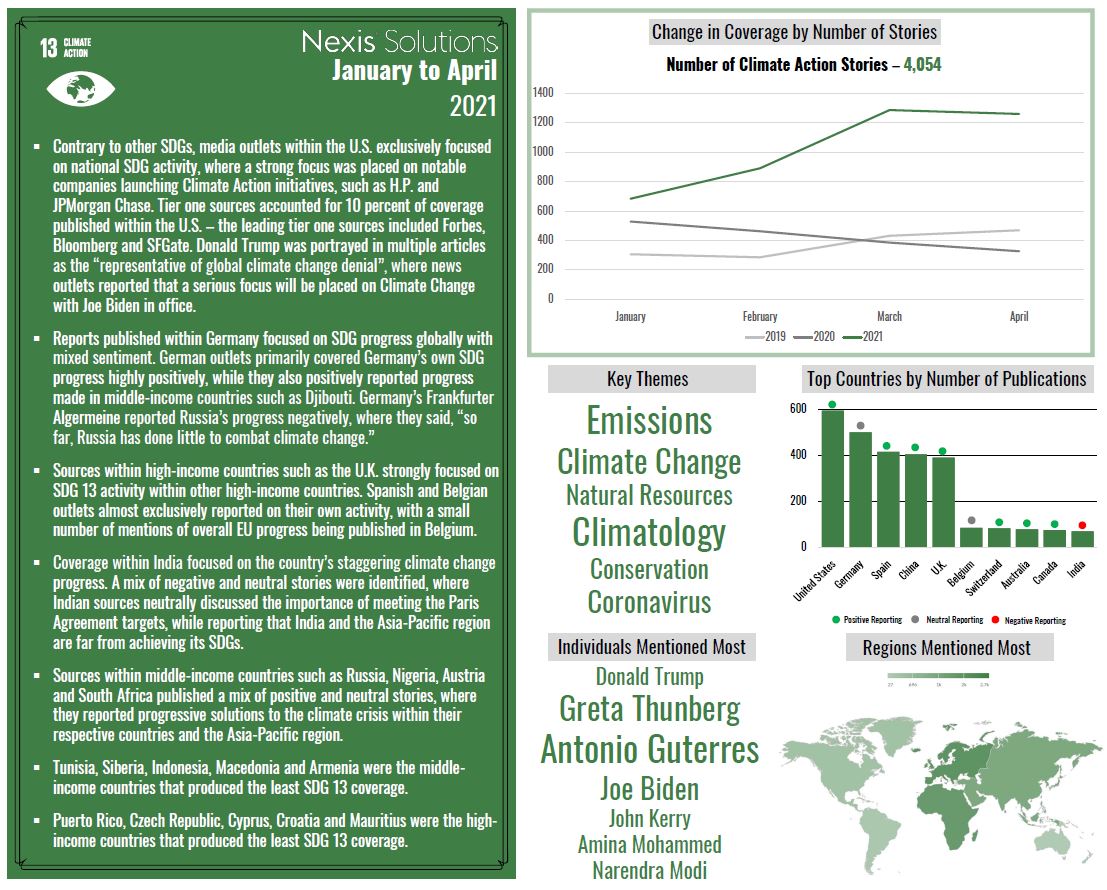LexisNexis Legal & Professional
Nexis Newsdesk™ has created graphics on the SDGs and the Global Media Landscape, offering charts & insights into global media coverage of the Sustainable Development Goals. View findings for Global Goal 10.
LexisNexis Legal & Professional
Nexis Newsdesk™ has created graphics on the SDGs and the Global Media Landscape, offering charts & insights into global media coverage of the Sustainable Development Goals. View findings for Global Goal 13.
Elsevier,
30th March 2021
Open Access (OA) and the advent of access programs such as Research4Life have rapidly transformed the publishing landscape. In some ways, they have made strides in bridging the knowledge gap between high- and low-income countries. In other ways, they may present obstacles, so it’s important to ensure that a move towards open access doesn’t disadvantage low-income countries.This article contributes to SDGs 10 and 17.
Elsevier,
8th Mach 2021
In recognition of International Women’s Day (IWD), Elsevier, a global leader in information analytics specializing in science and health, has launched a free access special issue of curated content focused on women and gender issues in health and sciences.
Podcast Series: The SDG Impact of COVID-19
Get unique expert insight into the impact and implications of Covid-19 on the Sustainable Development Goals with our podcast series.





